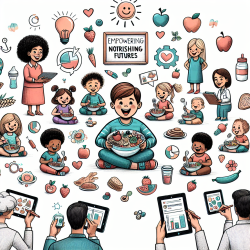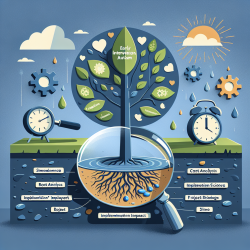The integration of genetic and genomic tools into psychiatric practice is a burgeoning area of interest that holds promise for advancing our understanding and treatment of mental health disorders. The scoping review titled "Applying Genetic and Genomic Tools to Psychiatric Disorders: A Scoping Review" provides a comprehensive overview of how these tools are being applied to various psychiatric conditions, along with the ethical, legal, and social concerns they raise. This blog aims to help practitioners improve their skills by implementing the outcomes of this research or by encouraging further exploration into this field.
The Scope of Genetic and Genomic Applications
The review identified 15 DSM-5 diagnostic categories where genetic or genomic tools have been applied. These include depressive disorders, anxiety disorders, bipolar disorders, and more. The use of these tools extends beyond clinical settings to include criminal proceedings and educational contexts. This wide application underscores the potential for these tools to offer insights not only into the biological underpinnings of psychiatric disorders but also into personalized treatment strategies.
Ethical, Legal, and Social Concerns
The application of genetic and genomic tools in psychiatry raises significant ethical, legal, and social concerns. Issues such as privacy, confidentiality, potential discrimination (in employment or insurance), and stigmatization are prevalent. The review identified 22 types of concerns associated with these applications. For practitioners, understanding these issues is crucial for ethical practice and patient advocacy.
Addressing Ethical Concerns
- Informed Consent: Improving informed consent practices is paramount. Patients should be fully aware of what genetic testing entails, including potential risks and benefits.
- Legal Protections: Implementing stronger legal protections against discrimination can help mitigate some of the adverse effects associated with genetic testing.
- Genetic Counseling: Expanding access to genetic counseling can assist patients in making informed decisions about undergoing genetic testing.
The Role of Practitioners
Practitioners play a critical role in navigating the complexities introduced by genetic and genomic tools. By staying informed about the latest research findings and ethical guidelines, practitioners can enhance their clinical practices. Engaging with ongoing research allows practitioners to contribute to the development of evidence-based solutions to ethical concerns.
Encouraging Further Research
The review highlights the need for further research to understand better the implications of applying genetic tools in psychiatry. Practitioners are encouraged to participate in or support research initiatives that aim to address these gaps. Collaborative efforts between researchers, clinicians, and ethicists can lead to more comprehensive solutions that consider diverse perspectives.
A Call for Stakeholder Engagement
The review emphasizes the importance of stakeholder engagement in addressing ethical concerns. Engaging with patients, families, and communities can provide valuable insights into the societal impacts of genetic testing. Such engagement ensures that diverse voices are heard and considered in policy-making processes.
Conclusion
The application of genetic and genomic tools in psychiatry offers exciting opportunities for advancing mental health care. However, it also necessitates careful consideration of ethical, legal, and social issues. Practitioners are encouraged to enhance their skills by staying informed about research developments and actively participating in discussions about best practices. By doing so, they can contribute to a more ethical and effective integration of these tools into psychiatric practice.










